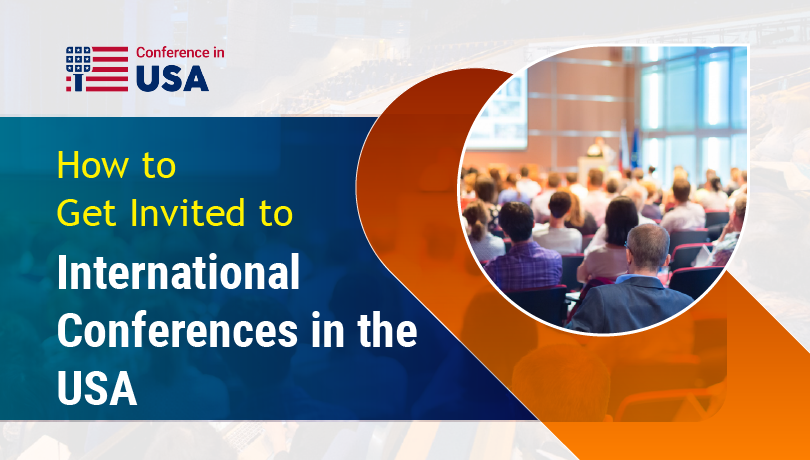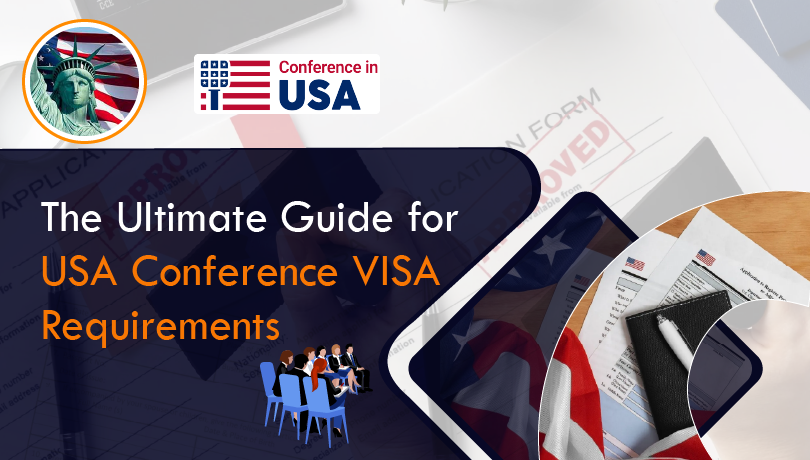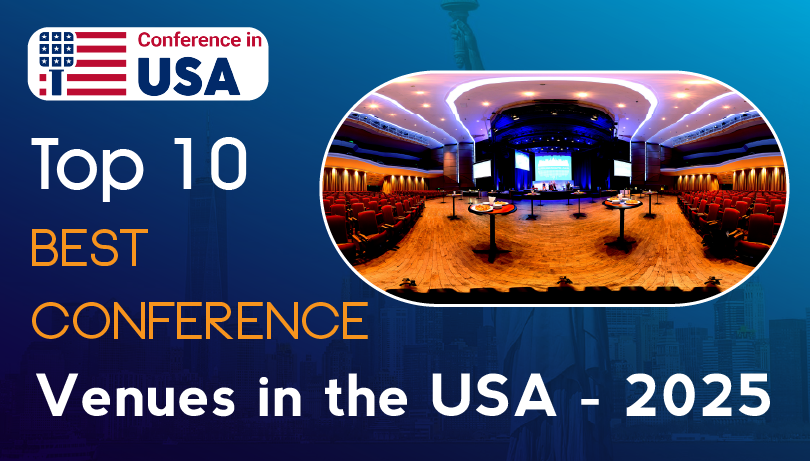The Ultimate Guide for USA Conference VISA Requirements
by John / January 7, 2025
Home / Conference Guide / The Ultimate Guide for USA Conference VISA Requirements
Attending professional conferences in the USA provides an incredible opportunity to expand your learning, network, and explore tourism. The country’s top international conferences offer diverse avenues for collaboration and skill development. However, before embarking on this enriching journey, it’s essential to navigate the process of obtaining a conference invitation letter and the required travel documents. This Ultimate Guide for USA Conference VISA will help you understand the steps to secure your visa and join these prestigious events seamlessly.
Visa requirements have an in-depth preparation for a seamless process within the specific timeline of a conference event. These distinct requirements allow you to avail the appropriate visa that fits your travel plan and learning experiences in the premiere hosting cities of the USA. This detailed guideline provides attendees with a comprehensive understanding of the visa requirements with a step-by-step process to avoid any delay or complexity in the overall process.
Determining the Right Visa Category
Understanding the types of visas is essential for attendees when joining conferences in the USA. Selecting the right one is crucial for your seamless conference experience, as each visa category serves a specific purpose. Participants from outside the country must focus on visa types, and their particular requirements to get the visa without delay or complexity during travelling.
J-1 Visa
A j-1 visa is designed for individuals joining exchange programs for conference activities. This visa focuses on the promotion of international cooperation through knowledge exchange.
F- Visa
This is primary for students and allows the participants to join in academic programs. This type of visa requires a direct relation to your field of study to participate in a relevant academic conference.
B-1 Visa
A B-1 visa allows individuals temporarily to travel through the USA for business purposes and join related conferences. This visa allows attendees to participate in events as long as they get no payment from a U.S. source. However, an individual can be exempt from reimbursement of expenses.
H-1B Visa
This visa is designed for professionals to attend USA conferences based on their employment. It can be challenging to get this visa if your participation is not related to your work or profession.
O-1 Visa
This distinctive visa is provided for extraordinarily talented individuals in their working fields. Attending the conferences with an O-1 visa showcases the attendee’s talent and achievements.
Visa Waiver Program (VWP)
Attendees from one of the listed 40 countries under this VWP might not need a visa to stay in the USA for up to 90 days. Find the list and check your eligibility depending on your citizenship for this visa waiver program. And if yes, you can conveniently apply for the Electronic System for Travel Authorization (ESTA) before travel.
Key Requirements for the USA Conference Visa
Invitation letter: Getting the initiation letter from the organizers of your selected conference is essential to getting the visa. This will help you to propel through the visa application procedure with ease.
Passport Condition and Validity: The passport of an attendee must be valid for at least six months beyond the intended departure date from the USA. No significant damage is advisable to avoid application rejection.
Personal Documents: All the necessary documents like passport photocopy, recent passport-size photographs, and conference invitation letter are important, along with other mentioned documents like vaccination certificate if required.
Application Form: You need to complete the DS-160 form with all authentic required details through the online application platform here.
Supporting Documents: Apart from the conference invitation letter, you may need to submit several documents, like fee receipt, travelling purpose statement, financial proof, residential proof, sponsorship, and travel itinerary.
Step-by-Step Guide to Apply for a USA Conference Visa
Step 1: Getting Your Conference Invitation Letter
To join a conference in the USA and apply for a visa requires the invitation letter. Applying for your chosen conference in the US based on your professional requirements and growth is the first step to applying for the appropriate visa.
Step 2: Select Suitable Visa Type
Before applying for the visa, you need to understand and select the appropriate visa type according to your profession and the aim of the visit. Among the J-1, B-1, F-1, or O-1 visas, carefully select one that lines up with your eligibility and the purpose of the conference visit.
Step 3: Complete Application Form
After choosing your suitable visa type, now apply through the DS-160 Form with the proper details asked on the online form. Be careful about your personal, professional, and financial information to avoid complexity in the verification process.
Step 4: Payment of the Application Fee
The successful completion of the DS-160 Form leads you to the non-refundable payment gateway for the visa application fee. The fee amount depends on the visa category and your citizenship country. Keep the payment receipt for the verification process later on.
Step 5: Schedule and Prepare for the Interview
Schedule an appointment at the U.S. embassy in your country. During the interview, present your documents and honestly answer all the questions asked.
Step 6: Visa Issuance
After processing, you’ll be allowed to know the decision on your approval. If approved, your visa will be attached to your passport for the visit. If the application is denied, you might be able to reapply by explaining their written exposition of the denial.
Navigating the Hurdles: Overcoming Challenges in USA Visa Processing
Getting a U.S. visa can be a long and tedious procedure for several reasons. Minor mistakes and lack of transparency can make your application rejected or delay the process. Applying for the right visa is crucial to secure a timely visa for travelling to the country. Issues like applying for a B-2 tourist visa for attending a conference with an additional period can lead to unsuccessful visa applications. However, delay in processing is another issue that needs to be managed by providing the appropriate set of information and documents.
Tips for Success
- Apply early as delay can lead to high volume administrative application processing before your conference events.
- Follow the visa rules meticulously to avoid any essential information being overlooked.
- Highlight your purpose for joining the conference and give a strong reason why you’ll return to your country.
- Organize all your documents for easy access during the interview.
Strategic planning with up-to-date knowledge of visa application is the key to successfully getting a U.S. visa for attending conferences. At ConferenceinUSA, we dedicatedly provide detailed information for upcoming conference events with application deadlines and other associated travelling information. Stay connected to stay updated and timely apply and get your visa to join the top conferences in the USA.
FAQs
What are the major reasons for U.S. visa rejection?
Denial of visa can be due to several reasons, like misinformation, incomplete information, ineffectiveness in showing purposes, or inability to show ties to your home country. Inconsistency in application and insufficient financial proof can lead to visa rejection.
How long does it generally take to get a U.S. visa?
It varies on the type of visa and location as well as with the seasonal influence of tourist volume. Generally, it takes 7-15 business days for decisions, and administrative procedures can take longer. However, it is advised to apply at least two to three months before your conference event.
How long can I stay with a B-1 visa while visiting the USA?
You can stay a maximum of six months with a B-1 visa by providing business, learning, and networking purposes. However, it can be determined by the Customs and Border Protection (CBP) officers.



Your gateway to learning, networking, and connecting with top conferences across the USA.
Our Newsletter
Subscribe to our Newsletter to stay updated with latest trends.
Menu
Contact Info
Copyright © 2025 Conference In USA. All Rights Reserved